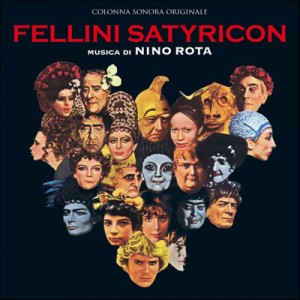“What would it take to break this cheap little spell and make us wake up and inquire what on earth we are doing when we make the Clinton family drama—yet again—a central part of our own politics?”
― the late Christopher Hitchens in 2008
——–
Both Republican and Democratic “elites” woke today with a headache. Perhaps they imbibed a bit too much last night, or perhaps they feel woozy because they sat on their duffs, passively watching during the last eight months as their parties were hijacked by “outsiders.”

Despite the big names in the Republican presidential field – governors, senators, a brain surgeon, another Bush – the GOP now confronts the political reality of the grand old party nominating a candidate, Donald Trump, who more closely resembles former Italian prime minister (and convicted procurer of sex with under age prostitutes) Silvio Berlusconi than any Republican candidate since the party nominated John C. Fremont in 1856.
At least both “successful businessmen” – the Italian stallion and the King of Queens – have very interesting hair and lots of former girlfriends.
Trump, a misogynist, a sociopath, a certifiable sufferer of narcissistic personality disorder – look it up – is the guy that the Parliament of our historically closest ally, Great Britain, recently considered banning from that sensible country. The venerable House of Commons really didn’t have the power to “ban Trump,” as nice as the ring of that sounds, but not a single member defended the necktie hocking, Muslim bashing, completely policy devoid real estate speculator.
I can almost hear the ghost of Churchill, the father of the “special relationship” talking to the ghost of FDR on that secret wartime telephone link from London to D.C. “Mr. President,” Winston asks, “what has happened to American politics?” The line goes dead.

The Republican frontrunner is a salesman who gives used car salesmen a bad name. Trump doesn’t really believe the garbage he spews (or maybe he is really an idiot and does), but he is really the guy who pulls up his sleeve, exposing the fake Rolodex watches, and sells what sells, at least to 30 percent of the Republican electorate.
The $64,000 question out of New Hampshire for Republicans is simply this: why did none of these smart guys, OK and Carly Fiorina, not go after the real estate developer when they might have stopped him? Hardly anyone took him seriously in July, me included, but that was not the case last October. All the signs were there – months ago – that Trump was hijacking a grand old party and no one, not Jeb, who he “emasculated,” or Cruz or Rubio or Christie who he insulted and dismissed called him out. No one, no one, has really taken on his checkered business record, his bankruptcies, his flip-flops, or his obvious mental and policy deficiencies.
I’m an aging political hack, but I think I could write the TV spot – something about four bankruptcies, three wives and two positions on every issue.
As Jennifer Rubin wrote of Trump in today’s Washington Post: “While his ceiling may be about 30 percent, the more traditional candidates will need to fight Trump not with conservative bromides but with bare-knuckle fighting and empathy for the working-class voters Trump attracts.”
But, enough of that. Let’s talk about Hillary. The Clinton Corps has been spinning a 20-point loss in New Hampshire, which Hillary won in 2008, as just an example of home field advantage by Vermont’s Bernie Sanders. It’s not.

The reports this week that Bill and Hillary Clinton were contemplating a shake up in her campaign in the wake of what really amounts to two straight losses – Hillary won Iowa, but not really – is all the proof needed that the Clinton machine hasn’t received any meaningful re-tooling in eight years. When you’ve been involved in two presidential campaigns, well four counting Bill’s, and you think the campaign’s problems are just a staff issue, then Houston – or Brooklyn – you have a problem.
The problem is an awkward, uneasy candidate with no compelling message.
Clinton may still hang on and win the nomination in ugly fashion, but she will forever be dogged by her inability to answer a really simple question in the recent Democratic debate. Why did Goldman Sachs, the poster child of Wall Street excess, pay her, after her tenure as Secretary of State, more than $600,000 for three speeches? Her answer for the ages was: “It’s what they offered.”
I suspect, as some in her Goldman Sachs audiences have said, that she gave those investment bankers just what they wanted to hear, but the real question is why? Why take the risk, why make the calculation that the money is more important than the message, particularly if you want to run for the highest office in the land? To paraphrase James Carville, “it’s the judgment, stupid.”
Bill and Hillary raked in more than $150 million in speaking fees over the last several years, so what’s a measly $600,000?
Clinton comes out of New Hampshire a limping candidate, her inevitability – haven’t we heard this before – not looking quite so inevitable. Deconstruct the New Hampshire vote and you’ll find Clinton lost in places where she cleaned Barack Obama’s clock in 2008. Bernie Sanders beat the inevitable by double digits in a state she won eight years ago. Could it be the magic is gone? Maybe she is, as Obama famously, said just likable enough.
This crazy season of American politics has produced as frontrunners a dangerous nationalistic buffoon and a 74-year old democratic socialist. This looks more like France than New Hampshire. The outsiders are now inside because the Republican “establishment” has produced a robotic Marco Rubio and a collection of current and former governors who act like they couldn’t win a county coroner’s race, while Democrats have recycled a deeply flawed, ethically challenged, self-entitled frontrunner who has no message beyond “I’m ready to be president.” Is Joe Biden doing deep knee bends, getting ready?
The ultimate irony of the presidential race, so far at least, is that the buffoon and the socialist have run the best campaigns. The so called political “experts” in the race can’t explain their speaking fees, their memorized speeches or their Super PAC’s. And the outsiders have a reality that a scripted Hillary or a calculating Ted Cruz will never match.
Trump isn’t really authentic, of course, but he fakes it better than any other Republican, while Sanders really is authentic and his only opponent isn’t.
Whether we like it or not, Trump and Sanders have articulated ideas about the America they see in the future. We may not like their aspirations, but they have them. The rest of the field is playing a tactical game that is all about winning a news cycle rather than winning the White House. Clinton will now look increasingly desperate as she goes after Bernie and someone in the Republican field will have to find the gumption to confront Trump on his own artificial turf. More than ever in this crazy race anything is possible.
The always sane, sensible, sober South Carolina primary beckons. Hang on.


































